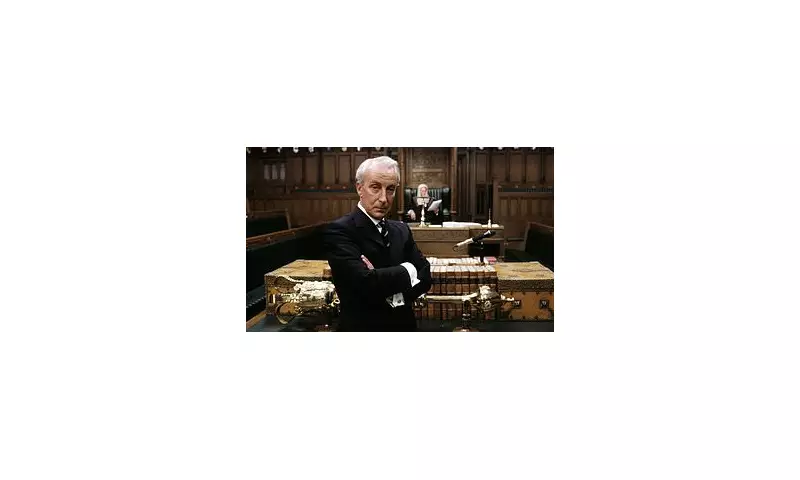
The Birth of a Political Masterpiece
During the summer of 1987, Michael Dobbs found himself basking in the Gozo sunshine with a bottle of wine and a writing pad. The former Tory party chief of staff, who would later become a member of the House of Lords and bestselling author, was contemplating his next novel following a bitter departure from the Conservative Party.
Margaret Thatcher had delivered a brutal dressing down to Dobbs, convinced her party was about to lose the upcoming election. This confrontation fuelled his creative process as he scribbled two letters on his pad: F.U. These initials would become the handy guide for his chief protagonist, Francis Urquhart, while simultaneously representing his feelings toward his former employers.
The resulting novel, published in 1989, became House of Cards and soared to number one in the bestseller lists. The book spawned highly successful television adaptations in both the UK and US, while Urquhart's catchphrase, 'You might think that; I couldn't possibly comment,' became endlessly recycled during political scandals.
The Shadowy World of Westminster Whips
Dobbs's novel charts the exploits of a scorned chief whip whose promotion is sidelined by a new prime minister. Urquhart plots, schemes and entraps – with his wife's full support – in a ruthless attempt to seize total power, deploying all the secrets and skills acquired during his time in the whips' office.
This Shakespearean saga of corruption, deceit and murder raises the question: who are the real whips of Westminster, and why do they maintain such a mythic reputation? As one political insider noted, 'the theory was that you never discussed what went on in the whips' office till your dying day, as though you worked at Bletchley Park.'
Decades of silence have stirred up considerable intrigue and suspicion about their activities. Their official job description appeared straightforward: to keep the parliamentary machine functioning, ensure votes went the government's way, and keep rebellious MPs on the straight and narrow.
However, the reality involved monitoring MPs' activities extensively. Whips knew who was drinking excessively, who might be susceptible to a foreign trip, and whose personal life contained enough disreputable elements to apply pressure when necessary. They made politics work through whatever means required.
Political Reality Stranger Than Fiction
The book examining this world serves as both a detailed history of British politics over the past fifty years and a feast of political anecdotes spanning more than five hundred pages. It contains more four-letter words than you'd encounter on the toughest building site, indicating that parliamentarians certainly enjoyed giving Anglo-Saxon language a thorough workout.
While whips now devote significant time to 'pastoral' care, as Harriet Harman once quipped about one chief whip, 'the idea that Michael Cocks could do pastoral support is like putting Dracula in charge of a blood bank.'
The 1970s and 80s represented a highly charged political environment where people behaved accordingly. Jack Straw, part of Labour's 1979 intake and a rising star, recalled becoming 'a bit cocky' until chief whip Walter Harrison 'took me in hand.'
Straw described feeling 'a pain between my legs that I had not experienced since the school rugby field' as Harrison fixed his eyes on him. The future foreign secretary rose on tiptoes as Harrison pushed him upward. 'Now lad,' Harrison said, 'Have you got the point or do you want some more?' That was proper politics, as Straw probably wouldn't want to say.
Labour operated with a razor-thin majority of three in 1974, though they could usually count on independent Irish MP Frank Maguire, who ran a pub in Fermanagh. However, as Maguire's wife Philomena would explain to whips, 'Frank can't come Tuesday, it's dance night.' The business of government literally depended on dance night at a pub in Fermanagh.
When Maguire did arrive in London, whips would take him to a bar 'where he'd get quietly p****d until ten o'clock and then he'd vote for us. After we got his vote, it didn't matter if he slept on the Thames as far as we were concerned.'
Another tale, possibly apocryphal, comes from the 1974-9 Parliament when both parties sometimes had to bring sick MPs from hospital to secure votes. One was wheeled in after a severe heart attack, still in the ambulance. When a Tory whip questioned whether the MP was alive, Labour whip Joe Harper, a former miner, leaned forward and turned the knob on the heart monitor. Seeing the green light flashing indicating a heartbeat, he declared: 'There you've lost – we've got 311.'
The events of the 1974-9 Parliament, ending with a vote of no confidence in Labour and victory for Margaret Thatcher, became the subject of James Graham's compelling drama This House, voted play of the decade. The production focused on the relationship between sets of whips – the 'usual channels' – as they attempted to sort out votes on tricky measures.
Some of Britain's sharpest creative minds have seized on the dark arts of the whips' office to create exceptional drama across stage, television and literature. After exploring this compelling book, the reasons become abundantly clear – though it's certainly not for everyone. You genuinely need to love your politics. And swearing, of course.






